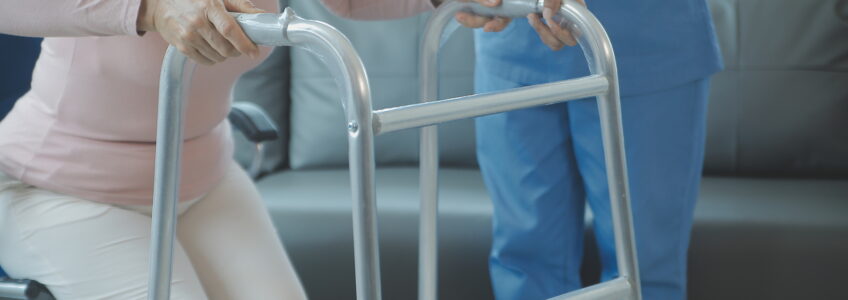
One of the most critical factors affecting the quality of life of elderly people is the condition of their hips. As people age, their hips change in ways that can affect their mobility, independence, and overall health. Knowing about these problems and the help available can make a big difference in staying active and happy as you get older. For instance, senior home care is a valuable resource that offers more than just assistance with daily tasks.
The Importance of Hip Health as the Years Pass By
The hip joint is a remarkable piece of engineering that can withstand a lot of weight and allows people to do important things like walking, sitting, standing, and climbing stairs. Over time, hip problems can develop as cartilage wears down, bones become less dense, and muscles weaken. Not only that, but as the years pass by, conditions such as osteoarthritis, hip fractures, and bursitis become more common—each of which can cause discomfort, stiffness, and a reduced range of motion.
When hip health worsens, the implications go beyond just pain and discomfort. Seniors may have trouble with simple tasks such as getting dressed, taking a shower, or preparing meals. Additionally, if they are afraid of falling, they might move less, which can weaken their muscles and bones even faster. This makes things worse because less movement leads to worse health, which affects mental health and social involvement as well.
Common Hip Problems
Many seniors experience hip pain that worsens when they move or sit for long periods. Stiffness in the morning is especially common, which makes it difficult to get going. Some older people develop a noticeable limp or feel their hip “giving way,” which makes them much more likely to fall. Not only that, but hip pain can make it harder to go up and down stairs, get in and out of cars, or stand up from a sitting position.
Hip fractures are especially concerning for seniors, often resulting from falls and requiring lengthy recovery periods. The rehabilitation process can be challenging, and some individuals never fully regain their previous level of independence without proper support and senior home care.
How Senior Home Care Helps
Senior home care offers individualized treatment plans and assistance to help seniors manage hip issues while also promoting safety and independence. They can also help seniors stick to their prescribed exercise programs, which aim to strengthen the muscles around the hips and increase flexibility.
Of course, caregivers can also help with everyday tasks, including grooming and dressing seniors, as well as completing chores around the house. Even better, they can teach seniors how to continue managing these tasks on their own with just a few adjustments.
Senior home care can also work with family members to make sure the home is safe. This might mean making modifications, such as installing grab bars, removing loose carpeting, and other things that lower the chance of falls.
Hip health doesn’t always have to limit what seniors can do. With the right support from senior home care, they can adapt how they do certain tasks and start to take matters into their own hands.
If you or someone you know needs Senior Home Care in Mankato, MN, contact Adara Home Health. We provide quality and affordable home care services for many fragile or senior members in the communities we serve. Call us at (888) 525-7742 for more information.
Sources:
- https://austinoi.com/blog/the-impact-of-aging-on-hip-health-what-seniors-should-know/#:~:text=One%20of%20the%20most%20common,restore%20function%20and%20alleviate%20discomfort.
- https://www.bannerhealth.com/healthcareblog/advise-me/four-ways-to-feel-hip-at-every-age
- https://www.cdc.gov/falls/prevention/index.html
- https://www.hackensackmeridianhealth.org/en/healthu/2021/09/07/how-seniors-can-increase-hip-strength-and-flexibility

